A number of weeks back we did a selection of sports economics and Simpsons pieces to coincide with the launch of Homer Economicus: The Simpsons and Economics. Last week’s Sunday Times report on the alleged corruption surrounding Qatar’s successful 2022 World Cup bid gives us more ammunition. The newspaper claims that large sums of money were passed between those behind the Qatar bid and FIFA representatives with voting privileges. At the centre of the allegations is former FIFA's executive committee member Mohamed bin Hammam. The Qatari national was supposedly a key figure in securing the 2022 World Cup. However, the Sunday Times reports that leaked email documents prove bin Hammam paid members of other nations' Football Associations prior to the 2022 FIFA World Cup bid. FIFA’s main sponsors (such as adidas and Sony) are now publically calling for an investigation into the matter.
This corruption story comes hot on the heels of another. A recent international friendly between Scotland and Nigeria at Fulham’s Craven Cottage was supposedly targeted by match-fixers. These allegations of fraud in the “beautiful game’ were so serious that the Scottish Football Association contacted the National Crime Agency to investigate the matter.
 Homer with the Executive Vice President of the WFF
Homer with the Executive Vice President of the WFF During the game, a Brazilian by the name of El Divo dribbles into the penalty area before diving. Homer true to his morals however, does not award the penalty. Germany go on to win the match 2-0 and lift the World Cup.
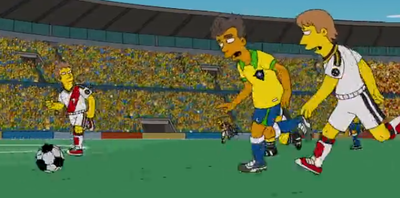
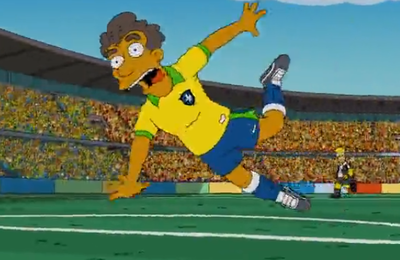
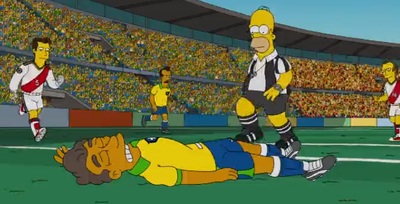
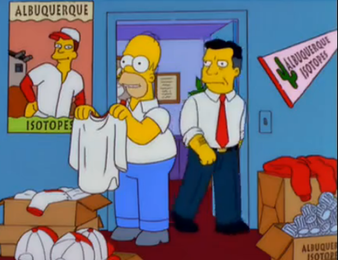
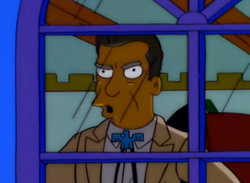
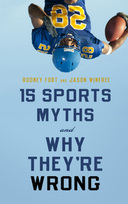
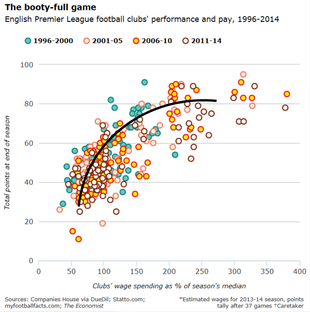
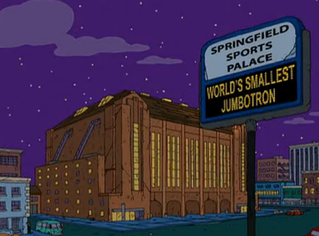
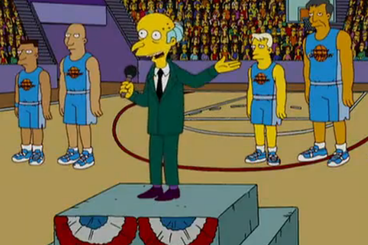
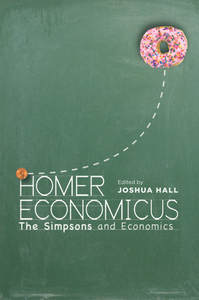
 RSS Feed
RSS Feed